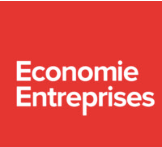Overview with Abdeslam Ababou, founder of Red Med Capital, on the effects of the current economic situation on SMEs, the capital market, and investment opportunities that present themselves in this new “challenging” context.
First, can you introduce us to Red Med Capital?
Red Med Capital is an independent and integrated investment bank, founded in 2004, structured around the four main areas of investment banking: Corporate Finance, through Red Med Finance, which covers mergers and acquisitions, financing through capital markets, and strategic consulting; Asset Management, through Red Med Asset Management, a certified asset management company, which has surpassed the threshold of 10 billion Dirhams under management through its 12 mutual funds offering risk levels adapted to each institutional or private investor profile; Private Equity, through Red Med Private Equity, with the first fund dedicated to Moroccan SMEs; and Securities trading through Red Med Securities. Red Med Capital is a group that has experienced controlled growth since its creation, with a strategy that prioritizes human resources and employs around 50 people, including seven partners.
The post-COVID economic context has reinforced the financing needs of Moroccan SMEs. What role has Red Med Capital played with these companies?
Firstly, it should be noted that the COVID crisis is the deepest crisis of the last decades. It is a crisis of unprecedented violence due to its depth, its impact on society, and its duration. Although Morocco has shown resilience, we have come out of this crisis extremely weakened economically with slowed economic growth and high inflation. Several sectors, such as tourism, construction, and industry, have been greatly impacted and many of our SMEs have been weakened. The state and the banking system have implemented a number of large-scale measures that have mitigated the impacts of the crisis on citizens and SMEs. However, the need for financing remains important. In this context, we have accelerated the development of our Private Equity activity, which aims to support national SMEs, characterized by chronic under-capitalization largely exacerbated by the COVID crisis, through investment tickets mainly between 30 and 90 million Dirhams. More specifically, our Columbus 1 fund aims to support SMEs and national companies in their local and regional development, to promote Made in Morocco and to participate in the creation and sustainability of jobs in our country. Red Med Private Equity acts as a full partner to SME partners by providing equity but also governance, strategic support, and the necessary tools to enable them to achieve their development plan. Furthermore, we have supported groups in fundraising through capital markets by proposing innovative solutions through Red Med Corporate Finance.
How do you see the evolution of the capital market in Morocco, particularly after the economic impacts of the Covid crisis and those of the war in Ukraine?
Globally, the capital market is going through complicated periods with a high level of risk partly related to inflation that has reached significant levels, which represents a major threat to purchasing power and therefore to economic growth. In Morocco, we are extremely cautious in asset management as we prioritize safe and appropriate investments. We have high hopes that the Moroccan capital market will come out stronger from this crisis through good risk management related to inflation, economic performance, and adopted social measures.
The war in Ukraine has indeed highlighted the need for countries to diversify their energy sources in order to ensure stability and energy independence for those heavily dependent on Russia. What’s your opinion about the opportunity it presents for countries like Morocco to position itself as a producer of energy and green energy vectors ?
The post-Covid context, followed by the war in Ukraine, has brought attention to the energy crisis and heavy dependence on fossil fuels from our European partners. In this context, we have assisted large groups in strategic thinking to make Morocco a privileged partner that offers a sustainable, reliable, and competitive source of green energy as an alternative to fossil fuels or at least an important substitute. In this regard, Morocco has many advantages with exceptional natural resources, some references proving its ability to develop large-scale projects, a stable framework conducive to investment, proximity to Europe, and not to mention, the pioneering Royal vision in the sector. This should make Morocco a world leader in green energy and its derivatives. Moreover, in the latest report from the International Energy Agency, Morocco is clearly identified as a priority country in the development of green hydrogen with a goal of producing 4% of the world’s demand for green hydrogen by 2030. The development of this sector should result in growth of the Moroccan industrial fabric related to this ecosystem. Indeed, several industrial components (wind, solar, electrolysis, etc.) can be produced locally allowing Morocco to capture added value, create jobs and benefit from a transfer of skills. On the human resources front, we also have an opportunity to train managers, technicians and employees of the new jobs related to this branch in a context of global shortage.
Furthermore, the development of this sector will provide access to extremely competitive green electricity for industries located in Morocco, which will structurally and sustainably strengthen the competitiveness of our companies. Morocco has proven through the development of the automotive or aerospace sectors that it is able to implement global strategies and create competitive and integrated sectors.
How does Red Med Capital position itself in this future sector?
Red Med Capital, supports and advises large multinationals that have prioritized Morocco in their development. We highlight Morocco’s competitiveness not only for producing electricity but also for competitively supplying demanding markets and helping to create a sustainable and virtuous socio-economic and industrial ecosystem.
You are one of the leading independent investment banks in the market, with several significant M&A transactions under your belt since your establishment. What is your opinion on the evolution of M&A activity in Morocco? What are your expectations for the future?
The market for mergers and acquisitions (M&A) in Morocco has been growing in recent years, even though the number and volume of transactions remain relatively low. We hope that this market will accelerate its growth to provide companies with the critical size, and to strengthen their competitiveness at the national, regional and international level.
What is your perspective on the economic environment and business climate in Morocco and its evolution prospects?
There is no denying that the business climate suffers from the low level of education of the population, some slowness of the administration, the entrepreneurial deficit, and certain governance deficiencies. These weaknesses have been identified with great accuracy by the special commission on the development model and a corrective action plan have already been put in place and will require the mobilization of all political, economic and civil society actors. Now, Morocco has successfully established, throughout the past decades, macroeconomic, regulatory, and political fundamentals which are essential for a more inclusive socio-economic development. This development will also be driven by certain assets such as political stability, historical liberal culture, the youth of our population or the quality of our infrastructure. In terms of economic prospects, past crises have been partly resolved by public investment, now it’s the time for the private sector to take over. This is also one of the objectives of the new investment charter, which aims to establish incentives for significant growth in national and international private investment regarding promising sectors. Following in the footsteps of the automotive or aerospace sectors, the green energy sector should significantly boost investments by 2030 and therefore economic growth.



